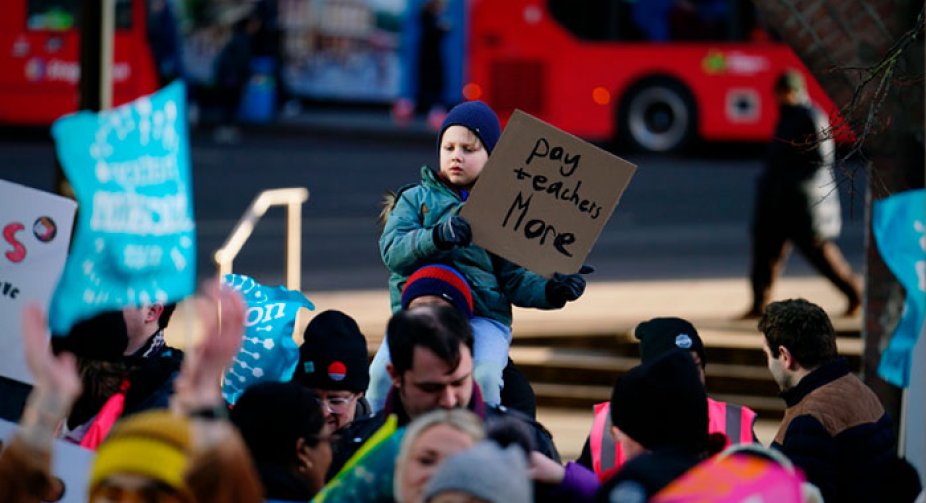The largest coordinated strike in a generation is taking place in Britain on Wednesday, causing disruptions in many areas.
This was reported by the Reuters agency.
Mass strikes across the country forced schools to close, most rail services to a halt, and the military on standby to help with border checks.
About 300,000 teachers are expected to strike on Wednesday. They are the largest group of strikers in a wider action involving 500,000 people, the highest number in at least a decade.
The British Education Workers' Union explained that teachers have no choice but to strike because low pay is causing large numbers of teachers to leave the profession and those who remain are struggling.
With inflation above 10% - the highest level in four decades - Britain has seen a wave of strikes across sectors in recent months, including health and transport workers, Amazon warehouse workers and Royal Mail postal workers.
Education Secretary Gillian Keegan said on Wednesday that demands for significant pay rises would only fuel inflation.
"We cannot afford to raise the wages of one part of the workers, which will lead to an increase in inflation and make the situation worse for everyone else. It is economically unwise," she said.
The strikes could have a negative political impact on Prime Minister Rishi Sunak's government. His Conservative Party trails the opposition Labor Party by about 25 percentage points, and polls show the public believes the government has handled the strikes poorly.
